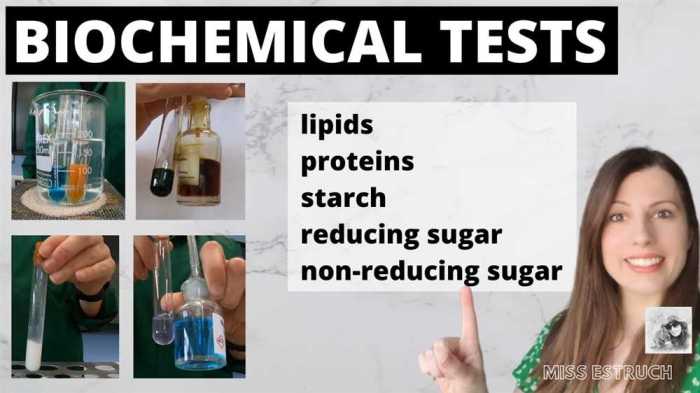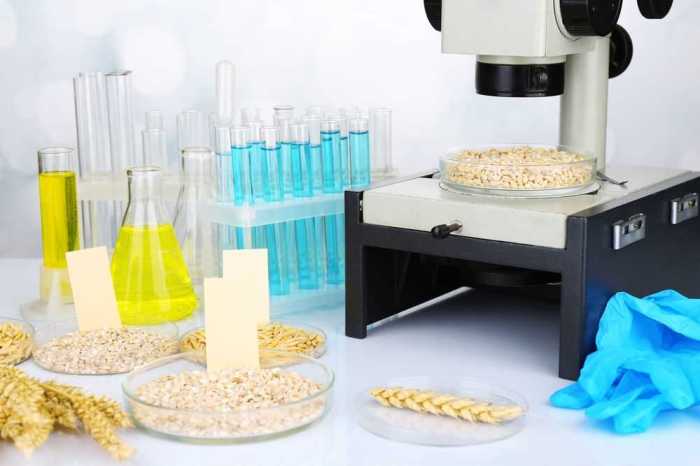Biochemical tests for food macromolecules are essential tools in the food industry, providing crucial insights into the composition and quality of our food. These tests help us identify, quantify, and characterize the macromolecules that make up our food, ensuring its safety and nutritional value.
By understanding the principles and applications of biochemical tests, we can ensure that the food we consume meets the highest standards of quality and safety.
Biochemical Tests for Food Macromolecules

Biochemical tests are essential in food analysis, providing valuable information about the composition and quality of food products. Macromolecules, such as proteins, carbohydrates, and lipids, play a crucial role in food composition, influencing its nutritional value, texture, and shelf life.
These tests aid in detecting and quantifying specific macromolecules, enabling food scientists to assess food quality, ensure safety, and develop new food products.
Types of Biochemical Tests
- Protein Tests:These tests measure protein content and quality, including methods like the Bradford assay, Lowry assay, and Kjeldahl method.
- Carbohydrate Tests:These tests determine carbohydrate content and composition, using methods such as the Anthrone test, Benedict’s test, and Fehling’s test.
- Lipid Tests:These tests analyze lipid content and composition, employing methods like the Folch method, Bligh and Dyer method, and acid hydrolysis.
Applications of Biochemical Tests, Biochemical tests for food macromolecules
- Quality Control:Biochemical tests ensure the quality of food products by verifying their nutritional content and detecting potential contaminants or adulterants.
- Food Safety:These tests help identify and monitor microorganisms that may cause food spoilage or foodborne illnesses.
- New Product Development:Biochemical tests support the development of new food products by analyzing the composition and properties of potential ingredients.
Data Interpretation
Interpreting the results of biochemical tests involves comparing the obtained values to established standards or reference ranges. Factors that can affect accuracy and reliability include sample preparation, reagent quality, and equipment calibration.
Limitations of Biochemical Tests
Biochemical tests have limitations, including potential errors due to matrix effects, interferences, and variability in sample preparation. Complementary analytical techniques may be necessary to confirm results and provide a more comprehensive analysis.
Detailed FAQs: Biochemical Tests For Food Macromolecules
What are the different types of biochemical tests used for food macromolecules?
There are various types of biochemical tests used for food macromolecules, including colorimetric assays, enzymatic assays, and chromatographic techniques.
How are biochemical tests used to ensure food quality and safety?
Biochemical tests are used to detect and quantify specific macromolecules in food, ensuring that the food meets regulatory standards and is free from contaminants or spoilage.
What are the limitations of biochemical tests for food macromolecules?
Biochemical tests can be limited by factors such as the sensitivity and specificity of the test, the presence of interfering substances, and the expertise of the analyst.

